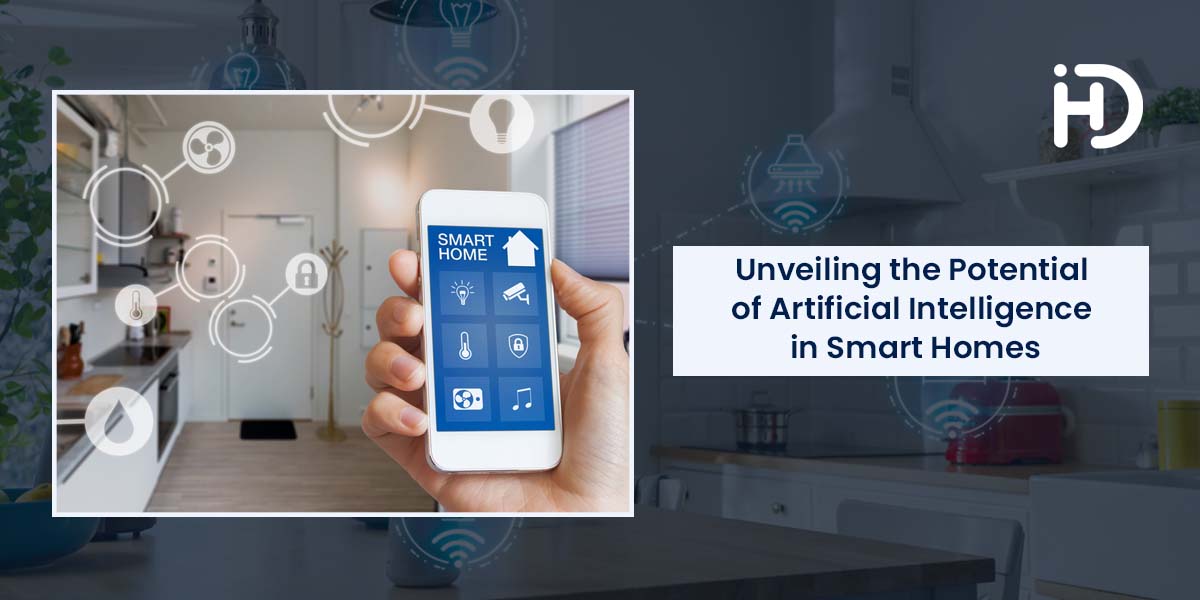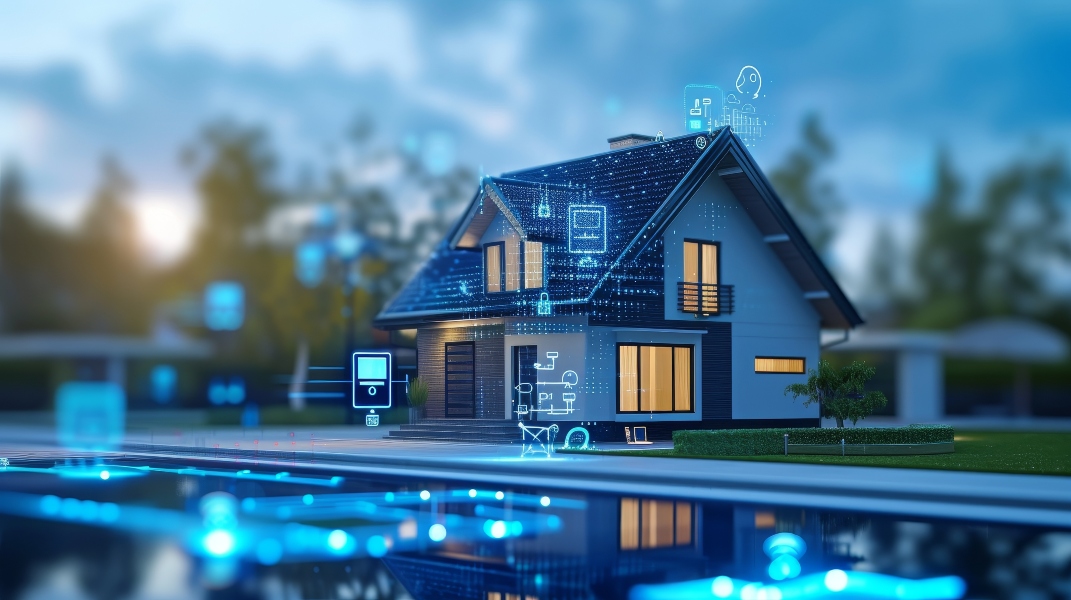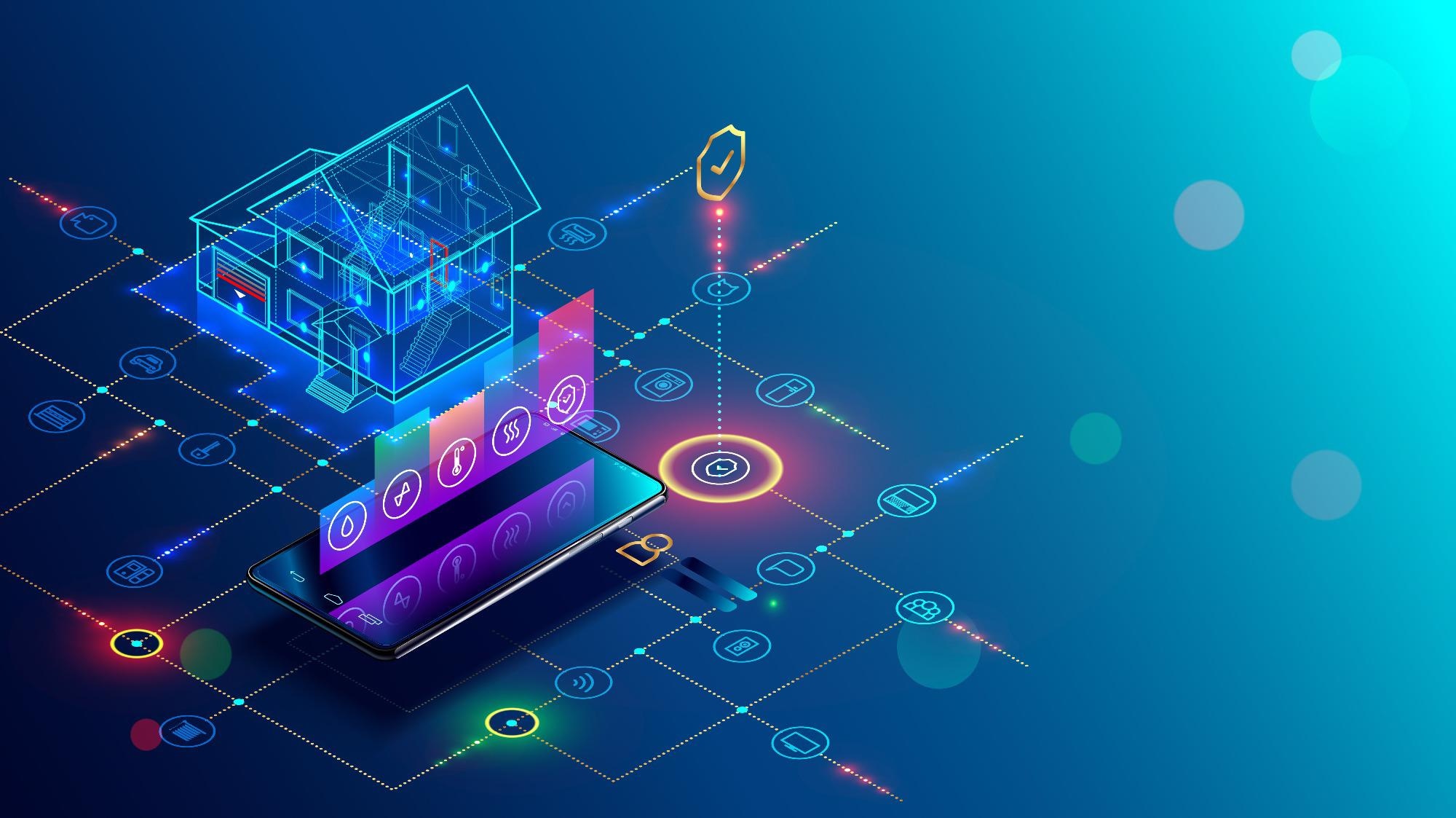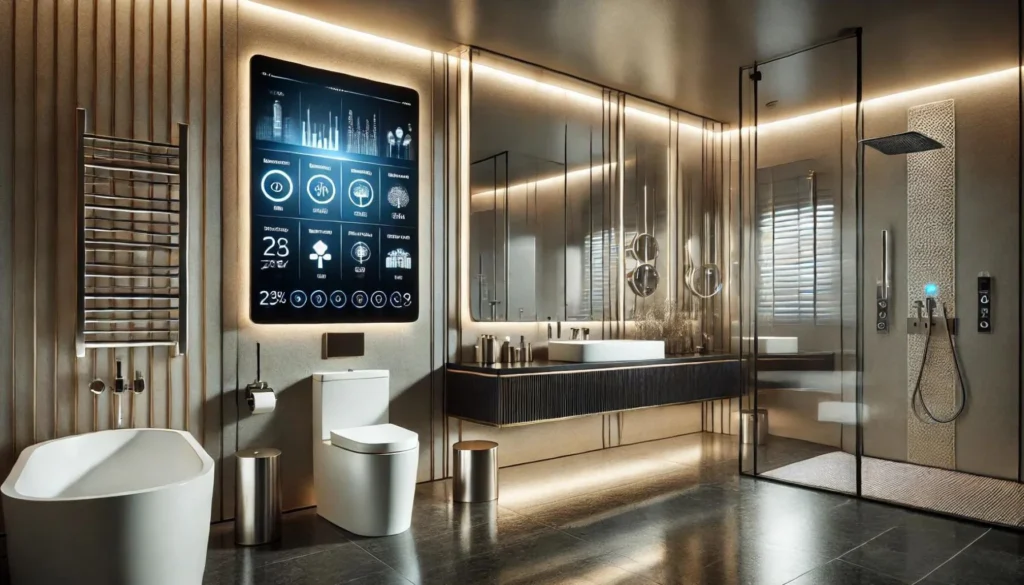Think of waking up to a home that already knows your morning routine. The lights turn on softly to match the sunrise, your coffee begins brewing before you even step into the kitchen, and the thermostat adjusts to your perfect temperature.
Sounds like a dream, right? This is the power of artificial intelligence (AI) in smart homes, and it’s no longer just science fiction—it’s reality. But here’s the real question: how does it all work, and how can it make your life easier?
If you’ve ever wondered how AI can transform your everyday living, you’re in the right place. We’ll uncover the surprising ways AI is used in smart homes and why it might be the upgrade you didn’t know you needed. Keep reading—you might just discover your home’s full potential.
Ai-powered Home Automation
AI is no longer a futuristic idea—it’s already reshaping how we live in our homes. Smart homes today rely on artificial intelligence to make everyday tasks simpler, faster, and more efficient. Whether it’s turning off the lights, adjusting the thermostat, or reminding you about an appointment, AI-powered home automation seamlessly integrates into your daily life.
Voice-controlled Devices
Voice-controlled devices, like Alexa or Google Assistant, are some of the most popular AI tools in smart homes. You can control your lights, play music, or even order groceries just by speaking. It’s like having a personal assistant that’s always ready to help.
Imagine coming home with your hands full of groceries. Instead of fumbling for a switch, you simply say, “Turn on the kitchen lights.” AI makes these moments stress-free and efficient.
Personalized Schedules
AI doesn’t just follow commands—it learns your habits over time. Smart devices can create personalized schedules based on how you live. For example, your thermostat might adjust itself to your preferred temperature before you wake up or go to bed.
Do you always forget to water your plants? A smart home system can remind you or even activate an automated watering system. These small adjustments save you time and make your home feel more in sync with your life.
Energy Efficiency Solutions
AI helps you save energy by optimizing the way your home operates. Smart thermostats, like Nest, can analyze your usage patterns and adjust heating or cooling to reduce waste. Some systems even suggest ways to lower your electricity bill.
Think about this: leaving lights on in empty rooms is a common habit. AI-powered lighting systems can detect when a room is empty and turn off the lights for you. Over time, these energy-saving tweaks can make a noticeable difference in your costs and your carbon footprint.
So, what part of your home could benefit the most from AI automation? Voice control, personalized schedules, or energy savings? Start small and watch how these tools transform your space into a smarter, more efficient home.

Credit: www.hdatasystems.com
Smart Security Systems
Smart security systems are transforming the way you protect your home. Powered by artificial intelligence, these systems are smarter and faster than ever before. They provide peace of mind by offering advanced features that keep your home secure—even when you’re not there.
Facial Recognition Technology
Imagine your security camera recognizing you as you walk up to your door. That’s facial recognition technology in action. It allows your system to differentiate between familiar faces and strangers, cutting down false alarms.
Many smart security systems now use AI to remember frequent visitors, like family members or delivery personnel. Over time, it becomes more accurate, ensuring better security. This feature is perfect if you want to minimize the hassle of manually checking your video feed.
Real-time Threat Detection
Wouldn’t it be great if your system could spot a potential threat before it becomes a problem? AI-powered smart security systems can do just that. They analyze patterns, detect unusual behavior, and alert you instantly.
If someone tries to break in, the system can sound an alarm or notify local authorities. Some systems can even distinguish between harmless activity, like a stray animal, and actual threats. This saves you from unnecessary stress and ensures a swift response to real dangers.
Remote Monitoring Features
Picture this: You’re on vacation, yet you can still check what’s happening at home in real-time. Remote monitoring lets you do exactly that. With AI-enabled apps, you can view live camera feeds, lock doors, or even talk to someone at your doorstep—all from your smartphone.
Some systems offer customized alerts so you only get notified about specific events, like someone entering your backyard. This keeps you informed without overwhelming you with constant notifications. It’s about having control, no matter where you are.
Smart security systems are no longer just about locks and cameras. They’re about keeping you connected to your home and ensuring your safety with cutting-edge technology. So, what features matter most to you when it comes to securing your space?
Ai In Climate Control
Artificial intelligence is transforming how we manage climate control in smart homes. AI-driven systems make heating, cooling, and air quality management smarter and more efficient. These systems adjust to your preferences, save energy, and create a comfortable environment. Let’s explore how AI enhances climate control.
Adaptive Thermostats
AI-powered thermostats learn from your daily habits. They track your temperature preferences and adjust automatically. Over time, they create a personalized schedule for heating and cooling. This reduces energy waste and keeps your home comfortable. Some systems even detect when you’re away and adjust settings to save power.
Air Quality Management
AI monitors indoor air quality and takes action when needed. Sensors track pollutants, humidity, and allergens. If air quality drops, smart systems activate purifiers or adjust ventilation. These systems ensure clean, fresh air for a healthier living space. They can also provide real-time updates on air conditions.
Seasonal Adjustments
AI systems adapt to changing weather patterns. During colder months, they ensure your home stays warm while saving energy. In warmer seasons, they maintain a cool indoor climate efficiently. These adjustments align with outdoor conditions to optimize energy usage. Seasonal changes become seamless with AI’s intelligent response.
Ai-driven Entertainment
AI-driven entertainment is transforming how we enjoy media at home. Smart homes now use artificial intelligence to enhance entertainment systems. From personalized recommendations to immersive audio, AI makes experiences more enjoyable. Let’s explore how AI is shaping the future of entertainment in smart homes.
Content Recommendations
AI helps suggest movies, shows, and songs based on your preferences. Streaming platforms analyze your viewing and listening habits. They then use AI to create tailored suggestions. This saves time and ensures you discover content you’ll love. The more you use these services, the better the recommendations get.
Voice-activated Entertainment Systems
Voice assistants like Alexa and Google Assistant control entertainment systems effortlessly. You can play music, stream a show, or adjust volume using simple commands. AI recognizes your voice and understands natural language. This makes it easy to control devices without touching remotes or screens.
Immersive Audio Experiences
AI enhances sound quality for a more immersive experience. Smart speakers and soundbars use AI to adjust audio based on room acoustics. This ensures optimal sound, whether you’re watching a movie or listening to music. AI can also create 3D audio effects, making entertainment more engaging.
Robotic Assistance In Homes
Imagine a home where tasks like cleaning, lawn care, and even receiving packages are handled by robots. Sounds futuristic, right? Well, it’s happening now. Artificial intelligence (AI) is powering robotic assistants that simplify daily chores, giving you more time to focus on what matters most.
Ai Vacuum Cleaners
Gone are the days of lugging around heavy vacuum cleaners. AI-powered vacuums, like the popular Roomba, navigate your home independently. They map your space, avoid obstacles, and clean every corner—even under furniture. You can schedule cleaning sessions or control them from your smartphone.
Some models even learn your cleaning habits over time. If you’ve ever felt guilty about skipping a day of vacuuming, these smart devices have your back. Do you think a robot vacuum could finally keep your floors spotless?
Smart Lawn Care
Mowing the lawn can be a tedious weekend chore. AI lawn care robots, such as the Husqvarna Automower, are changing that. These robots trim your grass regularly and autonomously, keeping your lawn neat without you lifting a finger.
They work quietly, even at night, and adapt to your yard’s layout. With weather sensors, they avoid operating during rain. Isn’t it exciting to think of a perfectly groomed lawn, minus the sweat and effort?
Home Delivery Robots
Home delivery robots are tackling one of the most annoying parts of online shopping—waiting for packages. Companies like Amazon and Starship Technologies are using small robots to deliver items directly to your doorstep.
These robots navigate sidewalks, avoid pedestrians, and arrive at your home with precision. Some even feature locked compartments to ensure your package stays secure. Wouldn’t you love to skip the awkward “missed delivery” notes?
Robotic assistance in homes is more than a luxury—it’s a practical solution to modern challenges. Which of these robots would you welcome into your home first?

Credit: www.cepro.com
Health Monitoring At Home
Artificial Intelligence is transforming how we care for our health at home. Smart homes now offer health monitoring features to improve daily living. These systems help track vital signs, detect issues early, and respond to emergencies. AI-powered tools ensure better health management without leaving the house. Let’s explore how AI supports health monitoring through wearables, remote tracking, and emergency alerts.
Ai-integrated Wearables
AI-integrated wearables like smartwatches and fitness bands track vital signs. These devices monitor heart rate, sleep patterns, and physical activity. They analyze data in real time to identify irregularities. For example, a sudden drop in heart rate triggers alerts. These wearables provide insights to help users make healthier choices. Their seamless integration with smart home systems makes health tracking easier.
Remote Health Tracking
Remote health tracking uses AI to monitor health conditions at home. Devices like smart thermometers and blood pressure monitors collect data. AI processes this data to detect trends and abnormalities. This technology benefits those with chronic illnesses or mobility issues. Healthcare professionals can access this data remotely for timely interventions. It allows better management of health without regular clinic visits.
Emergency Alert Systems
AI-driven emergency alert systems enhance safety during medical emergencies. These systems detect sudden falls, heart attacks, or breathing issues. Once detected, they send alerts to caregivers or emergency services instantly. Some systems also provide real-time updates to family members. This immediate response can save lives in critical situations. These alerts are a vital part of AI-powered health monitoring at home.
Learning And Adaptation
Smart homes powered by artificial intelligence (AI) are more than just high-tech gadgets—they’re designed to grow alongside you. These systems learn from your routines and preferences to deliver a personalized experience that feels tailored to your lifestyle. Whether it’s adjusting the thermostat or dimming lights at the perfect moment, smart homes are constantly adapting to make life smoother for you.
Behavioral Pattern Analysis
AI in smart homes observes and records your daily habits to identify patterns. Did you notice your lights automatically dim when you start watching TV at night? That’s AI learning your behavior. It detects when you wake up, leave for work, or relax, and adjusts settings accordingly.
Imagine coming home from work, and your favorite playlist starts playing while the air conditioning is already set to your preferred temperature. These small changes save you time and energy, creating a seamless living experience. Have you ever wondered how smart your home could get with more data about your habits?
Continuous Software Updates
AI systems in smart homes aren’t static—they evolve with regular software updates. These updates improve functionality, fix bugs, and add new features based on user feedback. Think about it: your smart devices are getting smarter every day.
For instance, a smart speaker might learn to recognize your voice more accurately after an update. Or your home security system may add advanced face recognition for better safety. How often do you check if your devices are up to date? It might be the key to unlocking their full potential.
Customized User Experiences
AI doesn’t just follow instructions; it personalizes your home environment. If you like your coffee at 7 AM sharp, a connected coffee maker can learn to brew it just in time. If you prefer bright lights for reading and softer ones for winding down, your smart lighting system adapts to your preferences.
Think of a smart home as a personal assistant that knows you better every day. From setting the perfect mood for your dinner parties to reminding you of an upcoming appointment, AI ensures your home fits your lifestyle. What features would you like your home to customize for you?
Energy Management Systems
Artificial intelligence has transformed energy management systems in smart homes. It helps homeowners save energy, reduce costs, and live sustainably. AI-powered systems monitor energy usage and improve efficiency across devices. They enable smarter decisions about how and when to use energy.
Smart Meter Integration
AI integrates with smart meters to track energy consumption in real-time. It analyzes data to provide insights into usage patterns. Homeowners can see how much energy each device consumes. This helps identify appliances that use excessive energy and need adjustments.
Peak Usage Prediction
AI predicts peak energy usage times by studying historical data. It uses machine learning to forecast when energy demand will be highest. These predictions help optimize energy use during peak hours. Homeowners can adjust device usage to avoid high electricity costs.
Optimized Appliance Usage
AI systems control appliances to ensure efficient energy use. They schedule devices to operate during off-peak hours. For example, washing machines or dishwashers can run at night. This reduces energy consumption while meeting daily household needs.
Challenges And Ethical Concerns
Smart homes powered by artificial intelligence (AI) are revolutionizing how we live, offering convenience, energy efficiency, and enhanced security. But this innovation doesn’t come without its share of challenges and ethical concerns. Let’s dive into some of the key issues that come with adopting AI in smart homes, so you can make informed decisions about your tech-savvy lifestyle.
Data Privacy Issues
One of the biggest challenges with AI in smart homes is the handling of your personal data. Devices like smart speakers, cameras, and thermostats collect vast amounts of information—sometimes more than you realize. This data is often stored in the cloud, raising questions about who has access and how it’s being used.
Imagine your smart assistant recording private conversations or your security camera analyzing your daily routines. Would you feel comfortable knowing someone could misuse that data? It’s crucial to read privacy policies and adjust your device settings to limit unnecessary data collection.
Cybersecurity Risks
Any device connected to the internet is a potential target for hackers, and smart home gadgets are no exception. A weak password or outdated software could give cybercriminals access to your personal space. The consequences? They could disable your security system or even spy on your family.
Think about this: Would you leave your front door unlocked? Treat your smart devices the same way. Use strong passwords, enable two-factor authentication, and regularly update your software to keep your devices secure.
Bias In Ai Algorithms
AI algorithms are only as good as the data they’re trained on. If this data is biased, it can lead to discriminatory outcomes. For instance, a facial recognition system in your smart home might fail to identify people with darker skin tones accurately.
These biases aren’t just technical glitches—they can have serious social implications. When choosing AI-powered devices, look for companies that prioritize ethical AI development and are transparent about their training data. Ask yourself: Is the convenience of AI worth the risk of unintentional bias in your home?
Smart homes offer amazing opportunities, but they also come with responsibilities. By being aware of these challenges, you can enjoy the perks of AI while minimizing the risks. What steps will you take to protect your home and your privacy today?

Credit: www.azobuild.com
Future Trends In Ai For Smart Homes
Artificial intelligence (AI) is reshaping how we live, and nowhere is this more evident than in smart homes. From voice-activated assistants to intelligent thermostats, AI is already making homes more convenient and efficient. But what’s next? Let’s dive into some exciting future trends that are set to transform smart homes even further.
Increased Interconnectivity
Imagine your smart devices talking to each other seamlessly. This is the direction we’re heading with increased interconnectivity. Future smart homes will feature AI systems that integrate everything from your refrigerator to your home security cameras.
For example, your smart fridge could notify your grocery app when you’re running low on eggs. Or your security camera could automatically alert your lighting system to turn on if it detects movement at night. This level of collaboration will make managing your home easier and more intuitive.
But here’s a question: Are you ready to trust all your devices to work together? It’s a shift that might require getting comfortable with sharing data across platforms.
Advancements In Ai Hardware
AI isn’t just about software—it’s also about the hardware that powers it. New chips and processors are being designed specifically to run AI tasks faster and more efficiently in smart devices. This means your gadgets will not only be smarter but also quicker to respond.
Take smart speakers, for instance. Future models will likely process voice commands locally instead of sending data to the cloud, resulting in quicker responses. This also addresses privacy concerns, as less data leaves your home.
Think about this: How much faster and safer would your smart home feel with AI hardware operating right at the source?
Sustainability Through Ai
Smart homes of the future won’t just be smart—they’ll be greener too. AI will play a key role in energy conservation and sustainability. Homes will learn your habits and adjust energy usage automatically to save resources.
For instance, AI-powered thermostats could optimize heating and cooling based on weather forecasts and your daily routine. Lights could turn off in empty rooms without you lifting a finger. Smart irrigation systems could water your garden only when the soil is dry, reducing water waste.
Here’s something to think about: Could AI help you lower your utility bills while also reducing your carbon footprint? It’s a win-win scenario that’s worth considering.
As these trends take shape, smart homes will become more than just convenient—they’ll be essential. The question is, how ready are you to embrace these changes in your own home?
Frequently Asked Questions
How Is Ai Being Used In Smart Homes?
AI powers smart homes through voice assistants, automated lighting, smart thermostats, security cameras, and energy management systems for enhanced convenience and efficiency.
How Is Ai Used In Smart Buildings?
AI optimizes energy use, automates lighting, enhances security, monitors systems, and improves maintenance in smart buildings. It analyzes data, predicts issues, and ensures efficient operations for better comfort and sustainability.
How Is Ai Being Used In Homes?
AI is used in homes for smart assistants, automated lighting, security cameras, smart thermostats, and personalized entertainment systems.
What Are The Ai Driven Advancements In Smart Homes?
AI advancements in smart homes include voice assistants, predictive automation, energy optimization, facial recognition, and personalized user experiences.
Conclusion
Smart homes powered by AI bring convenience, efficiency, and security to daily life. They simplify household tasks, optimize energy use, and enhance comfort. From voice assistants to automated lighting, AI transforms how we live. As technology advances, smart homes will become even more intuitive and accessible.
Embracing these innovations can lead to a more connected and efficient lifestyle. AI in smart homes is not just a trend; it’s shaping the future of living. Keep exploring its potential to make life easier, smarter, and more sustainable.

